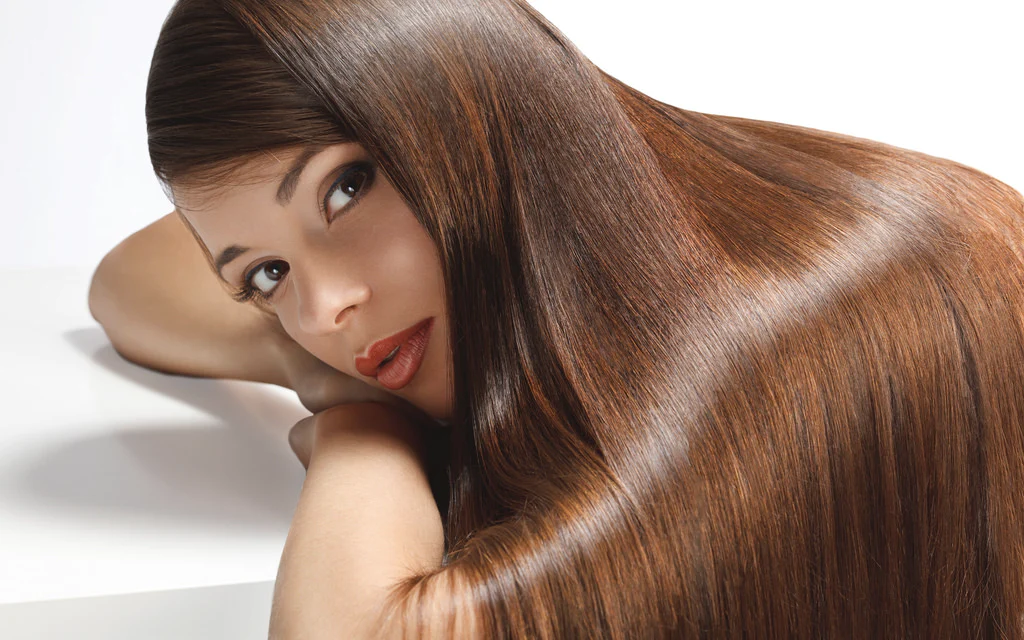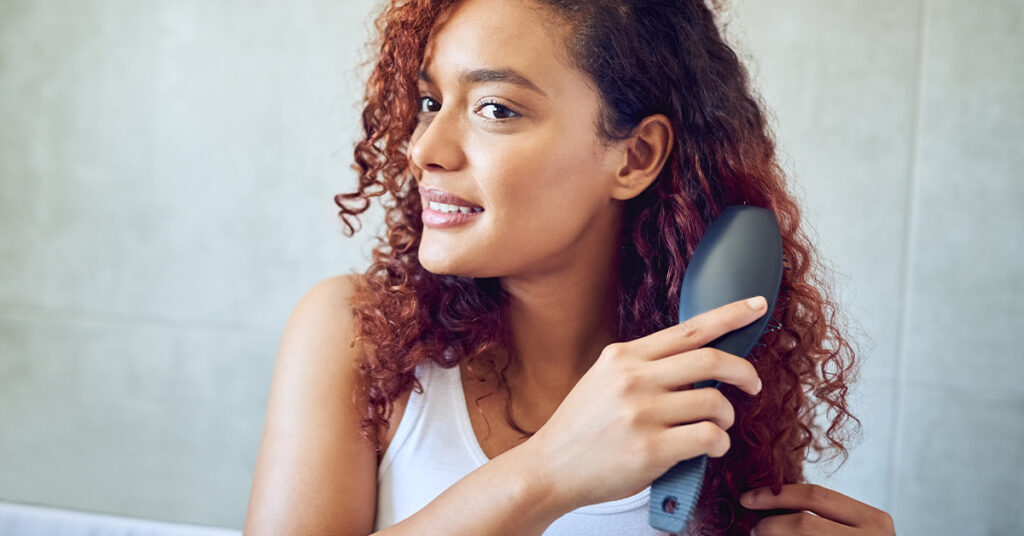
Table of Contents
Why Should You Condition Your Hair?
My naturally curly, coarse hair is always thirsty because I bleach it frequently and use heat on it more often than I’d like to admit. Even though my hair needs more moisture than others, I have many questions about how frequently I should condition my hair. When is it appropriate to use leave-in products, deep conditioning masks, and conditioner in the shower?
Types Of Hair Conditioner
To keep your hair healthy and manageable, use both shampoo and conditioner. Finding out what kind of conditioner you ought to use is the first step in figuring out how frequently to condition your hair.
1. Regular Rinse-out Conditioner
Rinse-out conditioner is the typical conditioner you use after shampooing, whether for colored, damaged, or curly hair. It only needs to be applied to your hair for a few seconds before being washed out. Each time you wash your hair, you should follow up with a rinse-out conditioner. Most people wash their hair a couple of times per week.
According to studies, the differences between various rinse-out conditioner varieties are not very significant. Knowing the difference between conditioner for straight hair versus curly hair or conditioner for color-treated hair versus uncolored hair is difficult, even though some brands will work much better for you than others.
Similar ingredients are frequently used by both, but they market their products differently for various hair types. Despite the similarity of the majority of conditioner brands, there are specialty conditioners designed to address more particular hair issues.
Among them are items like chlorine conditioners. These conditioners have a unique formula that cleans your hair of chlorine chemicals while replenishing its natural oils.
2. Cleansing Conditioner
In order to wash and moisturize your hair at the same time, a cleansing conditioner was developed. You only need to use one product in the shower because these are designed to be rinsed out after every use.
They are typically lighter and do not condition as deeply as using a conditioner by itself would because they need to clean and condition your hair. These conditioners work fantastically if you have oily hair and don’t weigh your hair down.
Whether you wash your hair every day or only once a week, you can use a cleansing conditioner as frequently as you need to. Even though you can skip shampooing for extended periods of time if you have dry, curly, or coarse hair, you should still condition it more frequently.
You probably won’t want to try cleansing conditioners if you have one of these hair types and only use the shampoo once or twice a week. Have a consistent rinse-out conditioner on hand so you can use it in between washes.
3. Leave-in Conditioner
Leave-in conditioner is exactly what it says it is. You leave it in your hair after getting out of the shower. Before your next wash, it’s supposed to keep your hair soft and tangle-free. This kind is excellent for damaged hair, curly hair, dry hair, and other hair types that require a little extra moisture throughout the week.
After showering and conditioning your hair, apply a leave-in conditioner and reapply as necessary throughout the week. Apply a leave-in conditioner before you go to keep your hair happy and hydrated, especially if you’re going swimming or traveling in arid weather.
4. Deep Conditioner
Deep conditioners should be applied to your hair a little bit longer than other conditioners to give them time to penetrate deeply into the hair follicles. It usually needs to be left on for five minutes while you take a shower, and it gives your hair a thicker, more conditioned appearance.
Use a deep conditioner once a week if your hair is severely damaged to help speed up the healing process. It will hydrate parched hair and aid in its recovery. Use a deep conditioner every month or two if your hair is just a little bit dry but not severely damaged.
I use a deep conditioner once a week or once every two weeks because I spend a lot of time in the ocean and don’t want my hair to become dried out from the salt.
The frequency at which anyone should use a conditioner is undefined. Your situation and the various environmental stresses on your hair will determine how frequently you use a conditioner.
5. Conditioning Masks
Even more than a deep conditioner, conditioning masks help repair your hair strands. You should let these masks sit on your hair for at least an hour. They strive to completely hydrate the follicles.
These should only be used when your hair needs a serious pick-me-up. I try to reset my hair with a deep conditioning mask every six months to keep it robust and healthy.
A conditioning mask won’t likely be necessary for those with fine or oily hair because it will weigh it down and make it even more oily than before. There are many different kinds of conditioning masks, and you can make a lot of them at home.
For instance, I saturate my hair with coconut oil once every few months and let it sit for an hour before shampooing and conditioning. Using this routine, you can apply a conditioning mask to your hair and keep moisture in it.

How To Condition Hair?
After thoroughly cleaning your hair, grab the conditioner and use these easy steps to give it a nourishing treat.
Step 1: Wring out your hair after rinsing off your shampoo to make sure your conditioner adheres to it and can nourish it. Here, your best bet is to gently absorb extra water using a towel.
Step 2: In the palm of your hand, squeeze a coin-sized amount of conditioner. Your formula usage will decrease as your hair becomes finer.
Step 3: Your hair’s mid-lengths and tips should receive an even application of conditioner.
Step 4: To get the most out of your conditioning treatment, gently comb the conditioner through your strands with your fingertips as you work your way down from the middle of your hair to the tips. Make sure that every strand is covered.
Step 5: Allow the magic to work for a while.
Step 6: Use cold water if you can to rinse gently but thoroughly for more shine. Continue rinsing if your hair still feels a little slippery, as you probably haven’t removed all of it. Insufficient rinsing leaves residue on the hair that makes it feel greasy or heavy.
How Often To Condition Your Hair?
Oily Hair And Fine Hair
You’ve probably felt your hair feel heavy and greasy after using conditioner if you have fine or oily hair. You don’t need to condition your hair as frequently as other hair types because of this phenomenon, which is common.
It’s generally a good idea to wash your hair a few times per week and then use a light conditioner afterward. Before drying, be sure to completely wash the conditioner out of your hair because any lingering residue will make you feel heavy.
A leave-in conditioner is typically not required, and you should only use deep conditioning treatments as necessary. After showering, use a cleansing conditioner to wash and condition your hair at the same time. It is light and will leave your hair feeling clean and full.
Dry, Coarse, Or Curly Hair
Regular conditioning is necessary for coarse, dry hair. It is likely that you will need to condition your hair every other day if you have this type of hair. Your routine will help keep your hair moisturized in between washes if you include deep conditioner and conditioning masks.
Shampoo depletes your hair’s natural oils, which causes drier, more brittle hair. If you have dry or coarse hair, you should reduce the number of times you wash your hair.
More conditioning than washing your hair will probably be required. Condition your hair three times weekly if you only shampoo once. Condition your hair four times weekly if you wash it twice a week.
Different hair has different ways of care, after reading this article, I believe you will learn more.